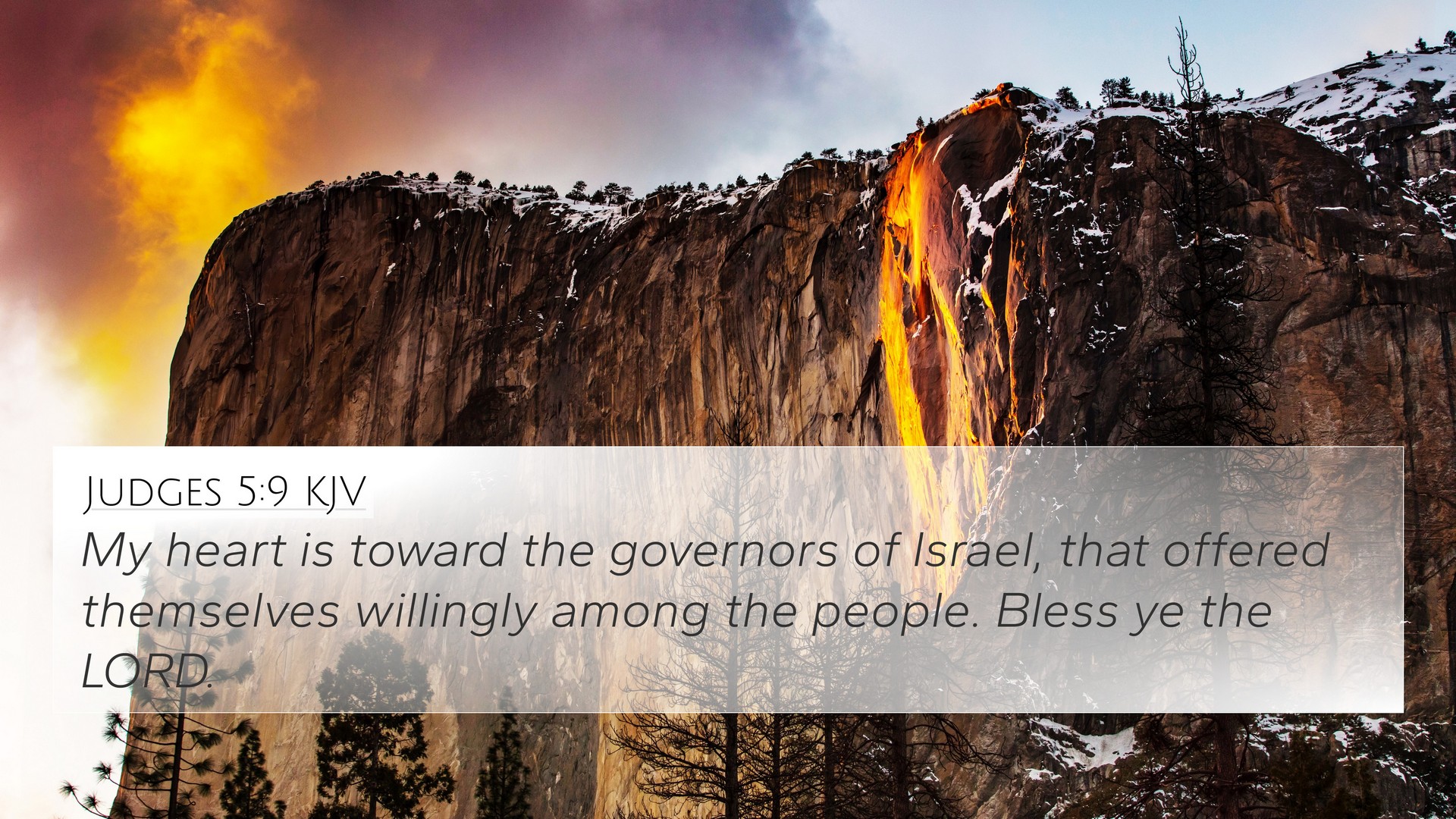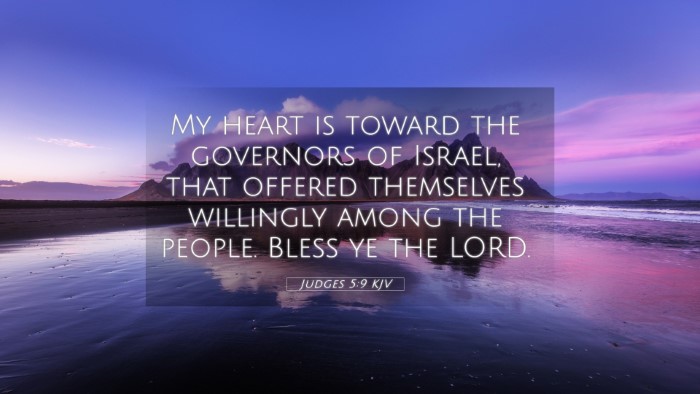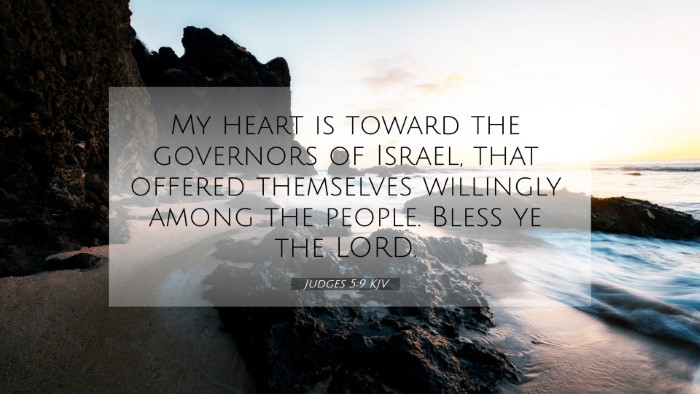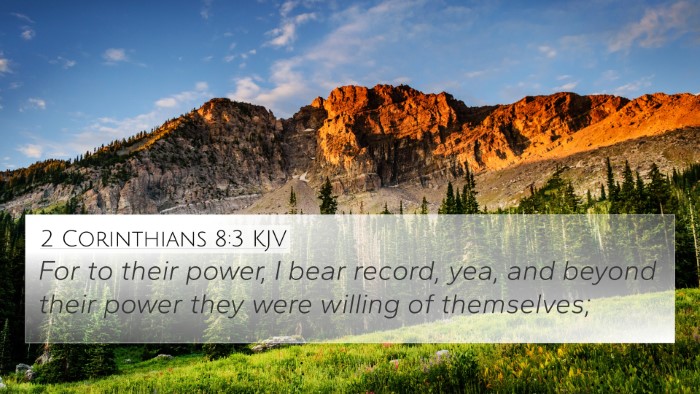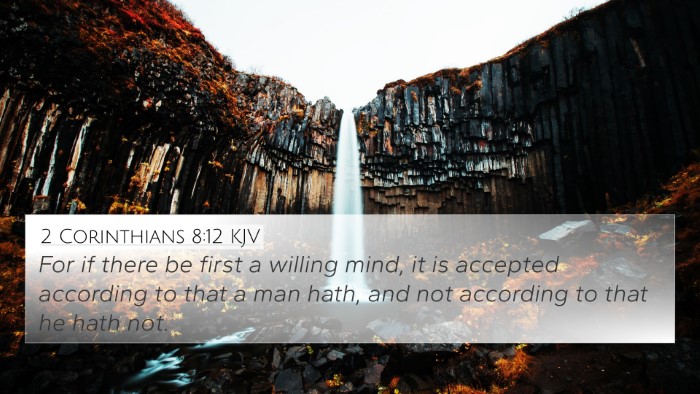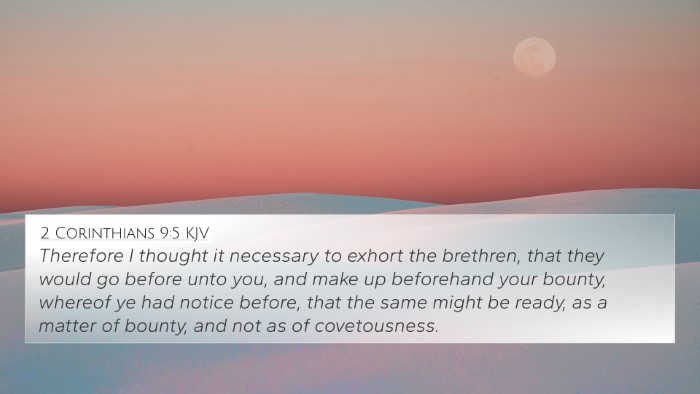Understanding Judges 5:9
Judges 5:9 states: "My heart is with the rulers of Israel, who offered themselves willingly among the people. Bless the LORD!" This verse is part of the Song of Deborah, celebrating Israel's victory over Canaanite oppressors. In this context, Deborah praises the leaders who rose to defend their people and acknowledges God's involvement in their triumph.
Key Themes and Insights
This verse draws attention to several themes worthy of exploration:
- Willingness to Serve: The leaders' willingness to fight indicates a commendable readiness for service. Their commitment to defend their nation is a vital lesson in leadership and community responsibility.
- Divine Cooperation: The acknowledgment of the LORD’s involvement underlines the vital connection between human efforts and divine support in achieving victory.
- Unity in Action: The mention of rulers working together emphasizes the importance of unity among leaders for the common good.
Connections to Other Scriptures
This verse connects with several other Bible verses, enriching its meaning and providing a multi-dimensional understanding:
- Exodus 35:29: "The children of Israel brought a willing offering unto the LORD..." - A parallel of willingness among God's people.
- 2 Samuel 23:16: Reference to leaders risking their lives for the people indicates the highest form of loyalty and is resonant with Deborah's praise here.
- Psalms 110:3: "Thy people shall be willing in the day of thy power..." - Highlights the responsiveness of God's people when inspired by God's might.
- Isaiah 1:19: "If ye be willing and obedient, ye shall eat the good of the land." - Reinforces the importance of willingness in serving God.
- Philippians 2:4: "Look not every man on his own things, but every man also on the things of others." - Encouragement of collective responsibility mirrors the mentality of the rulers in Judges 5:9.
- 1 Corinthians 12:12: "For as the body is one, and hath many members..." - Connection between community and the function of leaders is reflected in both scriptures.
- Romans 12:1: "Present your bodies a living sacrifice, holy, acceptable unto God..." - Similar theme of voluntary service to a higher cause.
Comparative Analysis
In comparative Bible verse analysis, we observe that Judges 5:9 goes beyond mere acknowledgment; it invites readers to explore the political and spiritual dimensions of leadership:
- Leadership Responsibility: Like many leaders in the Bible, the rulers here exemplify how divine calling and human initiative intertwine.
- The Role of Women in Leadership: Deborah, a female judge, highlights that leadership is not restricted by gender and complements the male leaders in the verse.
- Celebration of Victory: This verse sets the tone for communal remembrance, as seen in other celebratory scriptures, driving home the point that past victories should inspire future endeavors.
Historical and Cultural Context
The historical backdrop of Judges reveals a chaotic time within Israel. During this period, the Israelites often faltered and needed strong leadership to guide them. Understanding this context enriches the reading of Judges 5:9, as it emphasizes God’s providence amidst human striving.
Inter-Biblical Dialogue
Judges 5:9 engages in an inter-Biblical dialogue with texts across both the Old and New Testaments. For instance, the New Testament calls for leaders to act with humility and service, exemplified in Matthew 20:26-28 where leadership is described as servanthood.
Tools for Bible Cross-Referencing
For those studying this verse, utilizing tools such as a bible concordance or a bible cross-reference guide can enhance understanding:
- Sourced Cross-References: Gathering cross-referenced themes can shed light on how common principles are echoed throughout scripture.
- Bible Chain References: Organizing related verses into chains can visualize how various passages connect to the themes of leadership and community responsibility.
Further Exploration
This verse invites deeper exploration into themes of leadership and divine support. Questions for further study might include:
- What does it mean to serve willingly in various roles of life?
- How can we relate the act of offering ourselves to leadership in today's society?
